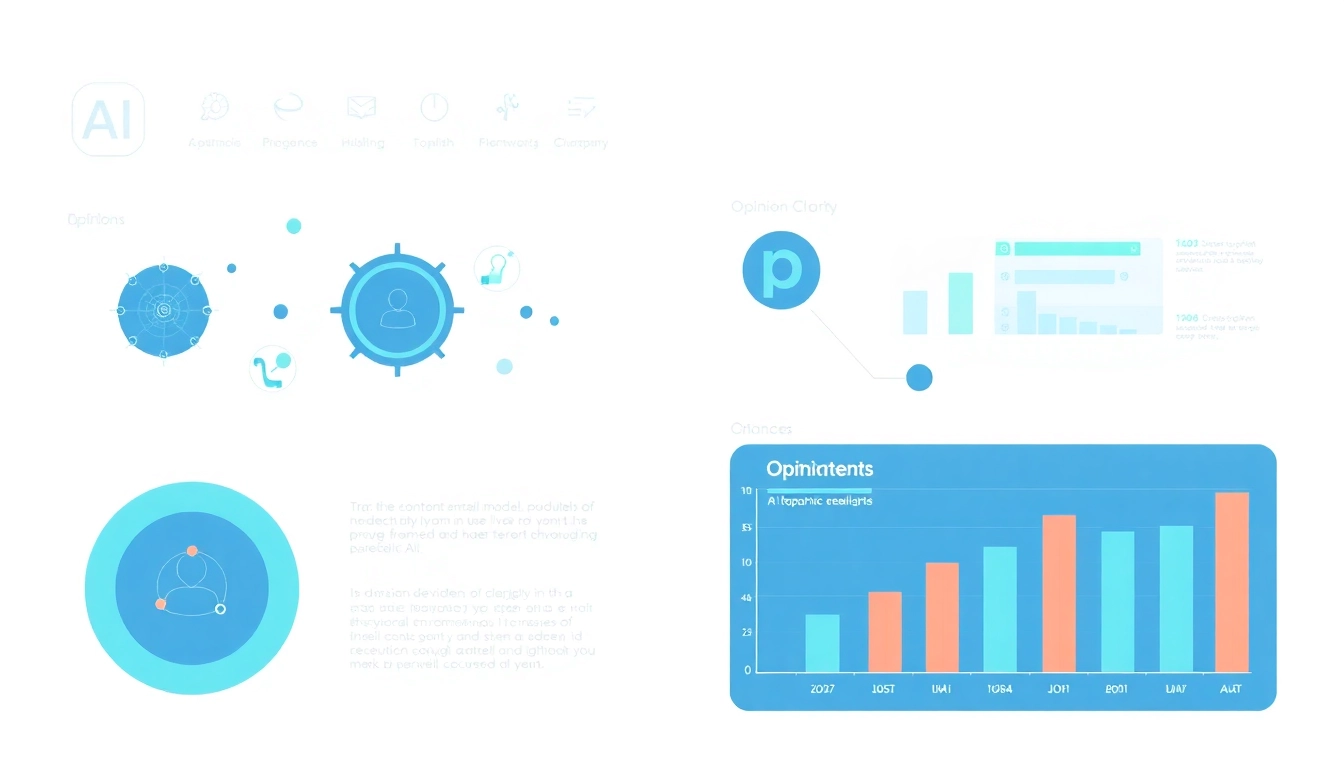Understanding AI Opinion Search
The digital age has ushered in an unprecedented amount of information, making it both a blessing and a curse for researchers, students, and the general public alike. With such a wealth of content available, discerning fact from opinion, quality from mediocrity, has become increasingly complex. This is where AI Opinion search comes into play, providing a solution that combines the efficiency of machine learning with the nuances of human thought. In this article, we will explore the mechanics, benefits, and future of AI-powered opinion search engines, and how they are transforming the way we access and interpret information.
What is AI Opinion Search?
AI Opinion Search refers to search engines that leverage artificial intelligence to filter and identify opinions from extensive databases of qualitative data. Unlike traditional search engines that primarily focus on factual content, AI Opinion Search aims to dig deeper into user sentiments, perceptions, and interpretations across various subjects, thereby providing a nuanced understanding of topics.
This form of search goes beyond keyword matching; it incorporates natural language processing (NLP) to analyze the context, tone, and intent behind written content. This allows users to access opinions from various sources, making it particularly useful in academic research, market analysis, and even content creation.
The Evolution of Search Engines
The journey of search engines began with simple text-based queries that returned a list of links based on keyword frequency. As technology advanced, so did search algorithms, evolving into sophisticated systems that assess relevance and authority through backlinks and content quality metrics.
However, the rise of AI has revolutionized this landscape even further. With the advent of AI-powered technologies, search engines began to understand user intent more effectively. Features such as voice-activated searches and personalized results became possible as search engines utilized machine learning algorithms to learn from user behavior.
Importance of User Opinions in Research
User opinions hold significant weight in various fields of research. In social sciences and market research, for example, understanding public sentiment can inform decisions, guide policy-making, and affect market viability. AI Opinion Search enables researchers to aggregate and analyze these opinions at scale, offering comprehensive insights that would be impossible to achieve through manual methods.
How AI Enhances Search Capabilities
Natural Language Processing and AI
Natural Language Processing is a critical component of AI Opinion Search that allows machines to understand and interpret human language. By utilizing NLP, AI systems can parse sentences, identify sentiment, context, and even irony, which are crucial for discerning opinions.
For instance, an AI Opinion Search tool can analyze reviews for a product, distinguishing between positive statements like “fantastic quality” and negative phrases such as “not worth the money.” This capability not only streamlines research but also enriches the data quality with sentiment analysis.
Data Analysis in AI Opinion Search
Data analysis is where the real power of AI Opinion Search lies. These systems can collate vast amounts of data from multiple sources, applying statistical methods to extract meaningful patterns and insights. For example, they can track prevailing opinions over time, revealing trends in public sentiment regarding certain topics.
This analysis can support industries ranging from marketing departments looking to gauge consumer reactions to researchers monitoring shifts in academic dialogue. By employing data visualization techniques, users can see trends and correlations more easily, making conclusions clearer and more actionable.
Case Studies of Successful Implementations
Several organizations have successfully integrated AI Opinion Search tools, providing valuable lessons on their efficacy. For instance, Consensus, a prominent AI-powered academic search engine, has used its platform to streamline the process for scholars and researchers seeking qualitative insights alongside quantitative data.
Another example is Elicit, which allows users to summarize academic papers and extract opinion data relevant to their inquiry. These platforms illustrate how AI Opinion Search is reshaping research methodologies and facilitating deeper understanding.
Key Features of AI Opinion Search Tools
Advanced Filtering Options
AI Opinion Search tools often come equipped with advanced filtering options that enhance user experience. Researchers can specify parameters based on date, topic, region, sentiment, or source type, allowing for highly tailored results. This granularity ensures users find the most relevant opinions without sifting through unrelated material.
User Interface and Experience
In the ever-competitive field of search technologies, user interface (UI) and user experience (UX) play crucial roles in the adoption of AI Opinion Search tools. Simplified navigation, intuitive design, and seamless integration with existing platforms lead to higher satisfaction and greater frequency of use.
Effective UI also ensures that users can leverage advanced features without needing extensive training, thereby improving access and engagement with the platform.
Integrating Other AI Technologies
The integration of additional AI technologies, such as predictive analytics and machine learning algorithms, enables AI Opinion Search tools to enhance their offerings further. By implementing machine learning, these tools can continuously learn from user interactions, refining their search capabilities over time to deliver more precise and relevant opinion analysis.
Best Practices for Utilizing AI Opinion Search
Optimizing Search Queries
To maximize the potential of AI Opinion Search tools, users should focus on optimizing their search queries. Using specific keywords, quotes for exact phrases, and incorporating Boolean operators (AND, OR, NOT) can yield better results. This targeted approach not only saves time but also improves the quality of the insights obtained.
Interpreting Search Results Effectively
Understanding how to interpret the results provided by AI Opinion Search tools is crucial for drawing meaningful conclusions. Users should consider the context of the data, the reliability of sources, and the analytics accompanying the opinions gathered. Visualizations, such as graphs and charts, can help in identifying trends and anomalies in the data.
Maintaining Security and Privacy
As with any technology that processes potentially sensitive information, privacy and security must be priorities. Users should familiarize themselves with the privacy policies of AI Opinion Search tools and utilize secure connections and encryption whenever possible. Additionally, researchers should be aware of ethical considerations involved in data usage and user consent.
The Future of Research with AI Opinion Search
Trends to Watch in AI Development
The future of AI Opinion Search looks promising, with several key trends likely to shape its evolution. The ongoing development of AI algorithms, increased emphasis on ethical AI, and advancements in NLP will enhance the accuracy and scope of these tools. Furthermore, integration with other data sources, such as social media, will provide a more comprehensive view of public sentiment.
Potential Challenges and Ethical Considerations
Despite its promise, the application of AI Opinion Search is not without challenges. Ethical concerns surrounding bias in AI algorithms, misinformation dissemination, and user privacy are prominent discussions in the field. Addressing these concerns is crucial as the industry matures, and failure to do so could hinder the widespread acceptance of AI Opinion Search tools.
Preparing for the Next Generation of Research Tools
For researchers and institutions, preparing for the next generation of AI Opinion Search means investing in training and resources. By fostering a culture of data literacy and encouraging the adoption of AI tools, organizations can better equip themselves for future research demands. Emphasizing collaboration between technologists and subject matter experts will also be vital in ensuring that these tools meet user needs effectively.



